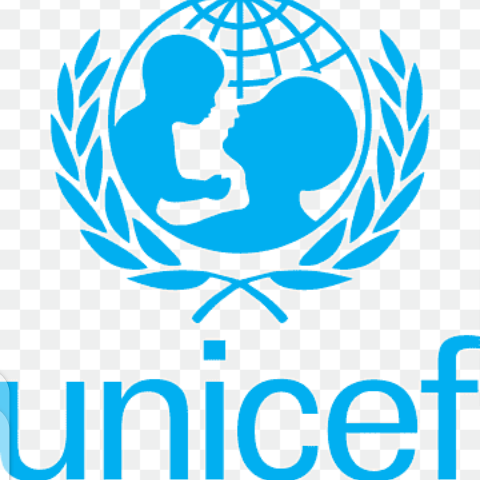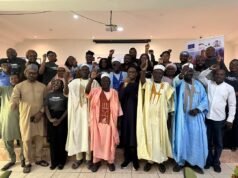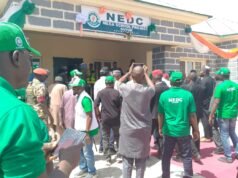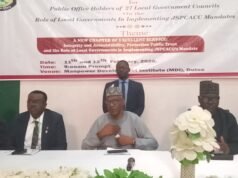From Mika’il Tsoho, Dutse
The United Nations Children’s Education Fund (UNICEF) assured more Partnership with Jigawa state government to promote schools safety, inclusiveness and quality education in the state.
This was announced by the Education Manager of UNICEF Kano Office Michael Banda during the Local Education Sector Operations Plan (LESOP) review and development workshop held in Jigawa.
He said , the workshop marks an important step forward in strengthening the state’s education sector planning and implementation framework. By reviewing and updating the LESOP, Jigawa is demonstrating a commitment to evidence-based decision making, accountability, and community participation — all of which are vital ingredients for transforming education at the local level.
While speaking on addressing Barriers through Local Solutions Banda said , despite progress, many children in Jigawa still face significant barriers to accessing quality education. Some are kept out of school due to poverty, child labour, early marriage, or distance to the nearest school. Others are in school but not learning at the level expected for their age or grade.
According to him, the LESOP process provides a unique opportunity to identify these barriers in each Local Government Area and to design local solutions that respond to the specific realities of each community. Whether it’s supporting school infrastructure, improving teacher deployment, strengthening school management committees, or increasing community engagement — the LESOP must serve as a bridge between state-level policies and the needs of children at the local level.
“UNICEF commends Jigawa for placing equity, inclusion, and quality learning at the heart of this review process. These priorities align closely with our shared goal of ensuring that no child is left behind”.
Also speaking on Adequate and Sustainable Education Financing, he said , UNICEF recognized that adequate financing remains a key challenge for achieving education goals. While Jigawa has continued to invest in education, we must ensure that funds are allocated efficiently, transparently, and in ways that directly improve teaching and learning.
He said, UNICEF encourages the State to explore innovative financing options, strengthen budget execution, and ensure that education resources reach schools on time. The LESOP should help local education authorities plan and implement realistic, costed activities that are fully aligned with the State Education Sector Plan and Medium-Term Expenditure Framework.
“When local governments have clear plans and predictable financing, they are better equipped to deliver results — to build classrooms, recruit and support teachers, and provide the materials children need to learn”, Banda said.
The education manager added that, equity must remain the guiding principle of education delivery. The LESOP must therefore pay close attention to children who are most at risk of being left behind — girls, children with disabilities, those in remote rural communities, and those affected by poverty or insecurity.
UNICEF remains a strong advocate for gender-responsive education planning. We are encouraged by Jigawa’s progress in improving girls’ enrollment and retention, but there is more to do to ensure that every girl not only starts school but completes it and learns meaningfully.
“We must also continue to promote safe and inclusive schools, where children are protected from all forms of violence, and where teachers are trained and supported to provide child-centred, gender-sensitive, and competency-based learning.
“UNICEF is proud to partner with the Jigawa State Government, development partners, and local communities in driving this process. Our support will continue to focus on:
Strengthening education data systems to inform planning and decision-making; Supporting teacher professional development, especially for foundational literacy and numeracy; Promoting school improvement planning and community participation; and Enhancing monitoring and accountability for learning outcomes.










